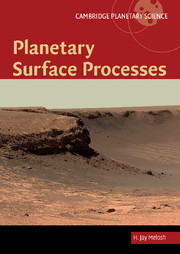Preface
Published online by Cambridge University Press: 05 June 2012
Summary
Preface
We are privileged to be living in one of the greatest eras of exploration that humankind has ever undertaken. Our current Age of Space grew out of the dark struggles of World War II when large rockets were developed as agents of mass murder. The subsequent Cold War rivalry between the United States and Soviet Union pushed rocket capabilities to the point that it became possible to send vehicles into Earth orbit and beyond (even though the stated aim was to send missiles carrying nuclear weapons over mere continental distances). The Russians put the first human into Earth orbit. The Apollo missions took American astronauts to the Moon, a target that Russia reached first with its unmanned vehicles: Russia stopped just short of a manned lunar landing. Somehow, amid all this politically motivated grandstanding, a few visionary engineers and scientists accomplished the feat that will be remembered by all future generations: the exploration of our Solar System.
While humans have not yet traveled beyond the Moon, robotic spacecraft with increasingly sophisticated electronic brains and sensory systems have now left the bounds of the Solar System. Spacecraft have visited all of the major planets, with the exception of Pluto (although some now argue that it is not really a “major planet”). Many planets and even asteroids have been flown by, orbited and landed upon by spacecraft. We have yet to bring back samples of any body other than the Moon, comet Wild 2 and asteroid 25143 Itokawa, so there is much more to accomplish, but we are learning about the universe outside our little Earth at a tremendous rate.
- Type
- Chapter
- Information
- Planetary Surface Processes , pp. xv - xviiiPublisher: Cambridge University PressPrint publication year: 2011

